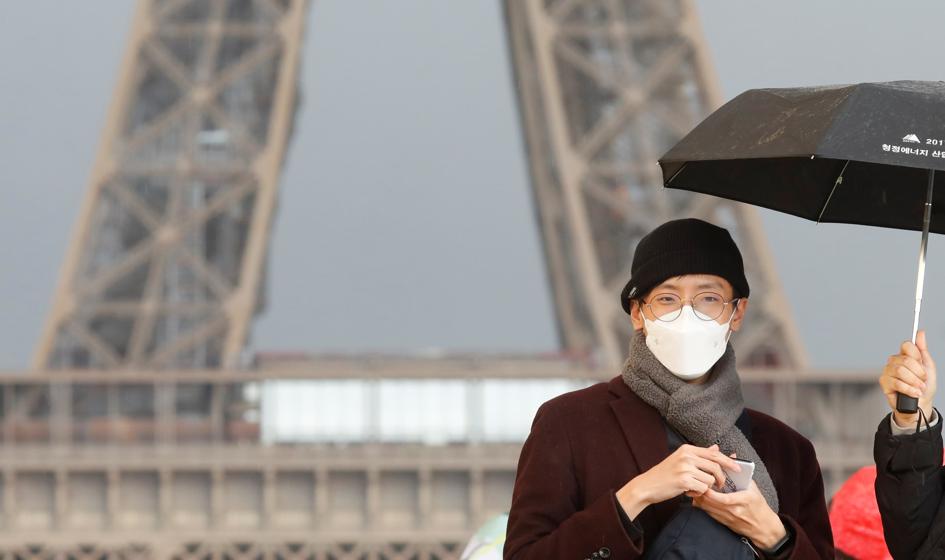Few industries have been harder hit by the pandemic than hospitality, but there is reason to feel optimistic once again. The New South Wales and ACT Governments recently announced their official reopening roadmaps, with restrictions poised to ease in mid-October when each hits a 70 per cent vaccination rate. Meanwhile, Victoria is expected to provide further clarity imminently ahead of its own reopening later in October. When so-called “Freedom Days” arrive, thousands of hospitality businesses and millions of diners around the country can again enjoy the experiences we once took for granted.
However, that doesn’t mean an immediate return to pre-pandemic hospitality. Instead, Australia’s bars, restaurants and cafes have many regulations and considerations to execute to master the transition successfully. However, they have tackled every challenge this far with resilience and innovation. By preparing ahead of reopening, leveraging technology, and finding new ways to communicate with customers, hospitality businesses can thrive in the short- and long term.
The new era of hospitality
Gone are the days when hospitality operators could rely solely on great food and drinks to be successful. Today’s hospitality businesses must be prepared, adhere to government regulations and be willing to adapt and cater to new guest behaviours. This first step is a COVID-safe plan that is compliant with existing rules, adaptable for when restrictions ease at 80 per cent and acknowledges social distancing to keep guests and staff safe. SevenRooms research recently found that 60 per cent of Australian diners say health and safety is an important consideration when choosing a venue following the pandemic – almost double pre-pandemic.
It may sound like a daunting undertaking, but there are resources available to help ease the transition. State government websites lay out regulations for 70 per cent and 80 per cent vaccination rates, while industry bodies like the Restaurant & Catering Association (R&CA) are a great source of information, support, and guidance. In many industries, it will be mandatory to show proof of vaccination to enter. Research shows that 65 per cent of Aussies are in favour of the requirements. Technology like SevenRooms can help operators clearly communicate their policies during the booking process and even allow businesses to add a ‘Vaccine Verified’ tag, so a guest only needs to provide proof during their first visit, but not subsequently. Australia’s hospitality industry is one of the most innovative and tech-savvy, globally which will stand it in good stead as it reopens.
The role of technology
Technology was once the privilege of only large groups, but it’s now essential and accessible for venues big and small. Technology is important for helping businesses comply with guidelines and maintain health and safety and responsible for providing guest experiences that turn good venues into great venues. This will be crucial initially when restrictions mean pre-planning is imperative and a spontaneous dinner out is less feasible. This starts with acquiring guests by wowing them with online reservations, virtual waitlists, and delivery and pick-up options; engaging them on-premise through virtual menus, contactless order-and-pay and tailored experiences; or retaining them by turning approved data into personalised marketing that keeps them coming back.
Guest experience isn’t only for the few hours a customer is in your venue, but for the days and weeks before and after. Venues that identify this will stand out in the new era of hospitality. SevenRooms recently teamed up with reservation platform TheFork, to provide venues with best-in-breed technology that helps them fill their reservations and provide an unrivalled experience that turns one-off visitors into regulars. Through this holistic technology that covers every customer touchpoint, venues can begin delivering their exceptional guest experiences today, so they’re ready to hit the ground running with a venue of eager customers when freedom days arrive.
Communication is key
As Australia enters a new era of hospitality, one of the most important – but often overlooked – aspects of reopening and long-term success is communication. It’s imperative that hospitality businesses clearly communicate their COVID-safe plan, the measures they’re taking to provide safe and exceptional experiences, and how the business will operate as restrictions evolve. This level of communication might sound like a time-consuming task, especially with venues keen to get back to what they do best after prolonged lockdowns. But with automated, personalised marketing, it’s not.
Marketing automation is a great way to keep guests updated about rules, regulations, and expectations, as well as the deals, dishes and experiences customers won’t want to miss. Based on their approved data and personal preferences, communication like this helps them feel more closely linked to your business. Those bonds have rarely been more important. Communication isn’t only important in states exiting lockdown, but nationwide as a long-term foundation of strong customer experience.
If we’ve learned one thing over the last 18 months, it’s that Australia’s vibrant hospitality industry is resilient and innovative. That same resilience and innovation will be on show again not only as states emerge from lockdown, but also long-term, as Australia’s famed and vibrant industry sets new standards of excellence in COVID-normal hospitality.
Read more: Let’s Talk: How has COVID-19 changed the sales process?
Read more: How technology is driving the personalised dining experience in the hospitality sector
Keep up to date with our stories on LinkedIn, Twitter, Facebook and Instagram.
Note: This article have been indexed to our site. We do not claim ownership or copyright of any of the content above. To see the article at original source Click Here













